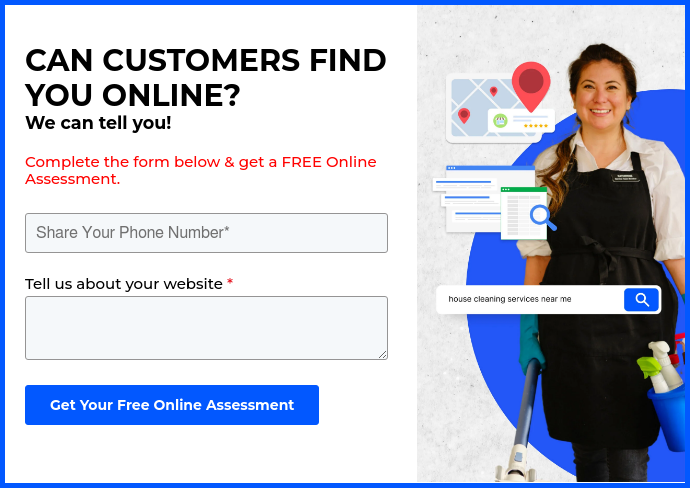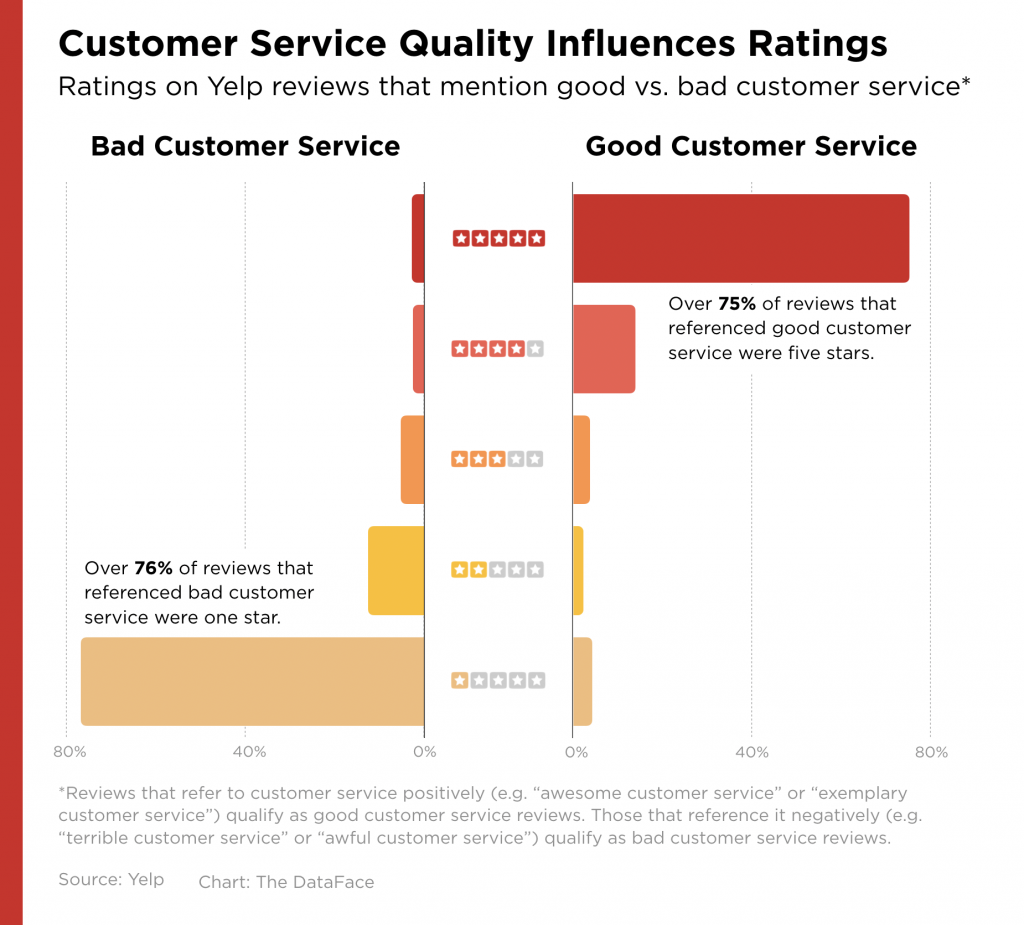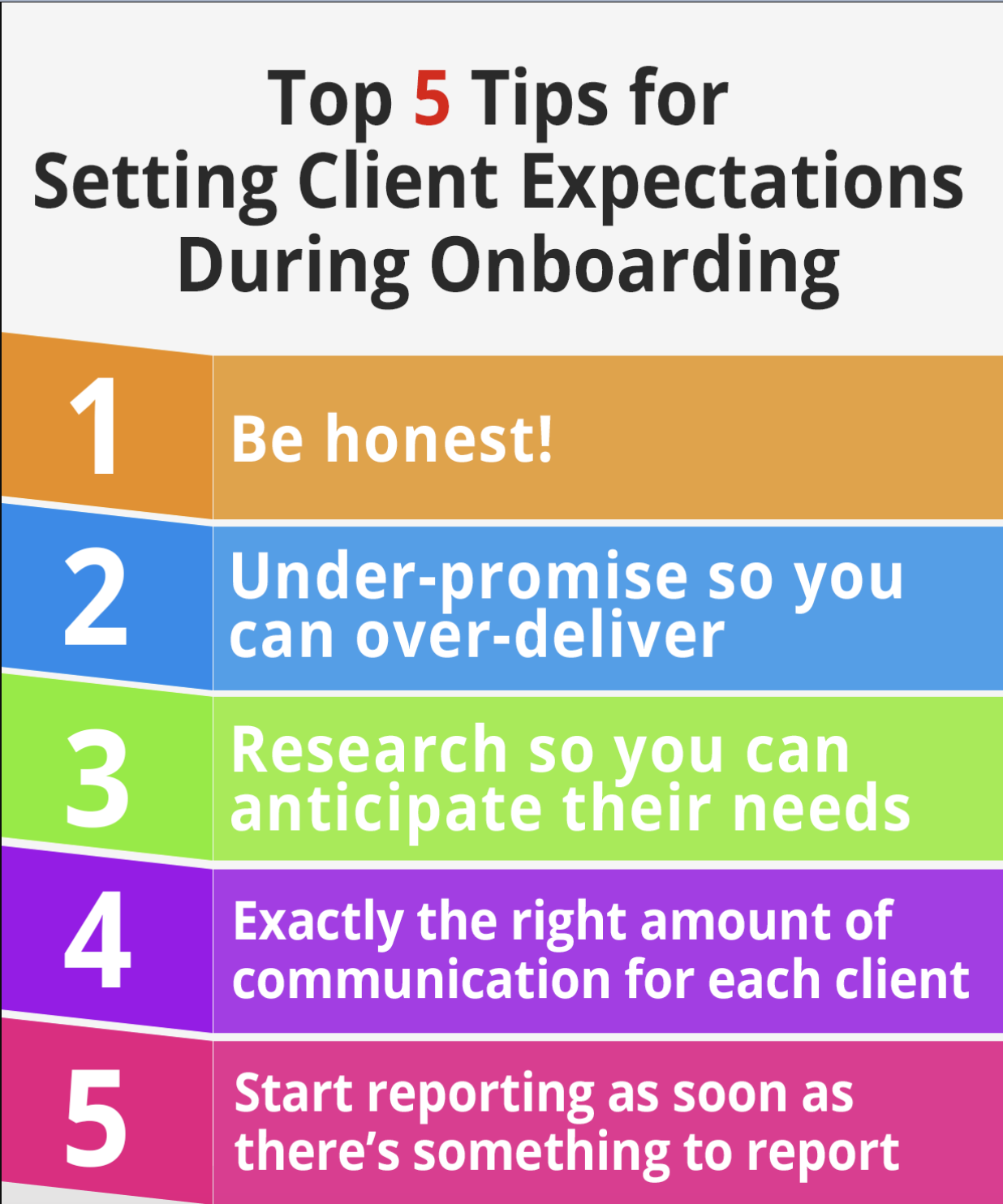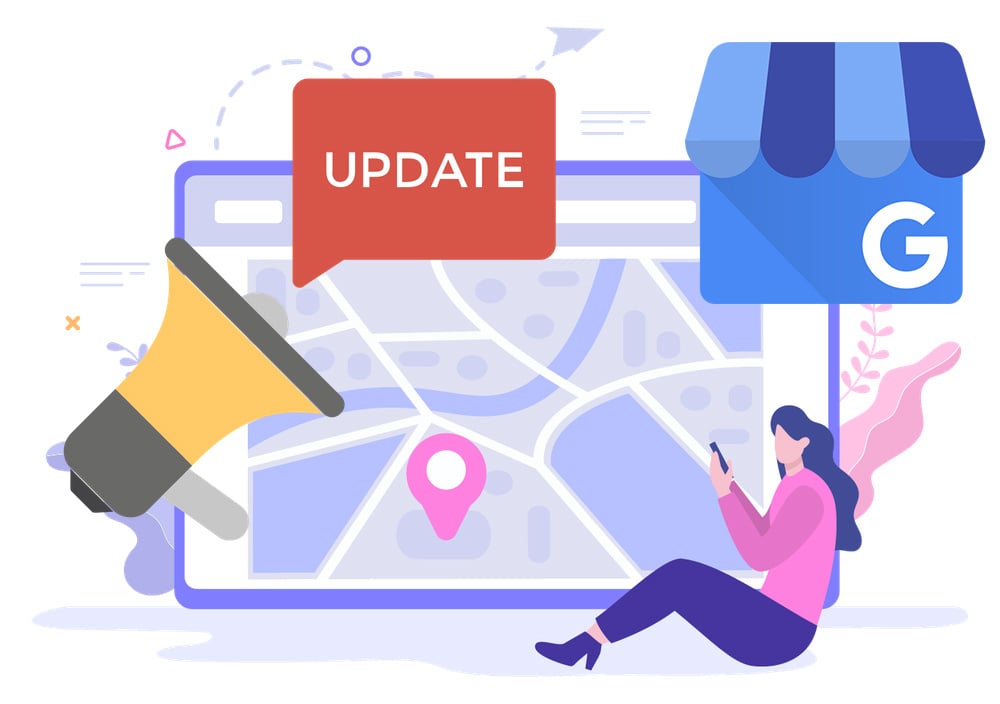How To Deal With Difficult Customers as a Small Business Owner
Learn how to deal with difficult customers. This comprehensive guide equips you with the skills and strategies for successful customer interactions.

Dealing with difficult customers is an age-old challenge in business. You’ve most likely heard the saying, “The customer is always right,” but that might not always be the case. Regardless, making sure every customer leaves satisfied is key to your business’s success.
So, how do small business owners navigate these issues without losing their composure or, even worse, losing customers? There are many reasons why pushing through with difficult customers is worth it, and this post will give you some customer service strategies to use when dealing with difficult customers.
Jump To:
- Reasons Why You Shouldn’t Give Up With a Difficult Customer
- What is a Difficult Customer?
- 11 Tips for Dealing With Difficult Clients
- Knowing When to Let an Angry Customer Go
- Conclusion

Reasons Why You Shouldn’t Give Up With a Difficult Customer
Great Customer Service is the #1 to Retain Customers
Great customer service isn’t just an option anymore – it’s a need for any business. According to Yelp, 76% of reviews that talked about bad customer service ended up with one-star ratings, which affect a business’s reputation negatively. When you’re consistent in the quality of your customer service, word of mouth has a higher chance of making or breaking your business.

Source: Yelp, DataFace, & Nextiva
Luckily, the power of exceptional customer service is just as strong. Over 75% of reviews that mentioned good customer service came with a five-star rating. These glowing reviews have the power to convert potential customers into loyal ones.
You Will Improve Your Skills
Dealing with difficult customers is bound to happen, but it’s also a big opportunity for growth. Each interaction offers a chance to use your skills, whether it’s negotiation, conflict resolution, or emotional intelligence. With every difficult situation, you get the experience to become a calm, composed professional who can handle even the toughest situations.
You can also use these experiences to get a greater understanding of your customer base. Working through customer complaints and critiques will help you gather information about what your customers need and want. This feedback could work to improve and develop your business.
Your Reputation Matters
97% of business owners say online reputation management is important. Each customer interaction is like a puzzle piece that becomes part of the final picture of your brand in the public eye.
When you face challenging customers, it’s not just about resolving that single issue – it’s about maintaining and even improving your business’s reputation. Handling it with grace and professionalism can reinforce your image as a trustworthy, customer-oriented business.
You Will Surpass Your Competitors
Sticking with a difficult customer can give you an edge over the competition. Every business, big or small, seeks customer loyalty and satisfaction.
In challenging situations, many businesses might choose the easier path of letting the customer walk away. But if you show determination and commitment to resolving the issue, you set your business apart as one that genuinely cares about its customers. These qualities won’t just attract more customers but build an impressive reputation that will overtake your competitors in the long run.
What is a Difficult Customer?
How to Identify a Difficult Client
We’ve all crossed paths with a customer who happens to demand a little bit more, whether in terms of attention, time, or resources. These are typically classified as difficult customers. They come with a lot of dissatisfaction, complaints, and potentially even unreasonable demands. They might question every aspect of your product or service and push further when given a solution – often remaining dissatisfied.
But it’s important to remember that not every customer with a complaint or two falls into this category. It’s about determining whether or not the customer can be served satisfactorily or not.
Either a customer takes your advice and is satisfied once their issue is resolved, or the customer still remains unhappy, despite a reasonable solution.
What is Emotional Intelligence (EQ)?
It is the ability to empathize with both yourself and others at the same time, see past someone’s initial reactions, and identify solutions that meet their needs. Emotional intelligence can be learned through mindfulness exercises and active listening.
Dealing with a wide range of customers – from the appreciative ones to the challenging ones – requires a certain level of emotional intelligence. Business owners with higher degrees of emotional intelligence are better equipped to handle a spectrum of customer behavior. So, owner-operators should constantly work to improve their emotional intelligence throughout their career.
Common Types Of Complicated Customers
Bullies
These customers have deep insecurities in general that they allow to carry over into their interactions with others. When you encounter a bully, you realize very quickly that these people have personal issues that have nothing to do with you. You’re simply in their way.
Bullies can be highly intimidating, and it takes inner strength to deal with them in a way that is positive for both of you. These people have been allowed to treat people poorly, and you might have to take a stronger posture with them.
What They Need
Bullies are usually hurting or anxious on the inside, and they deserve empathy. But before you can give them empathy, you may need to speak directly with them and ask them to treat you with respect. Be sure to look them in the eye and remind them that you are there to help them.
Distrusting
Whether they have trust issues from their personal past or were burned by the last service provider, these customers automatically assume that you will take advantage of them. Distrusting customers are far more likely to ask to “see it on paper” or micromanage you while you are on the job.
What They Need
Distrustful customers need transparency and frequent communication. If you demonstrate your dependability, they will eventually give you a little more space. That said, they may still micromanage you some even as they slowly learn to trust you more. Be patient with them and continue earning their trust.
Misunderstanding
Even the best customer service professionals run into misunderstandings with customers. As a local service provider, you’re occasionally going to realize that a customer is upset because they misunderstood what you are there to do.
Furthermore, you may have misunderstood them in the first place when they called you to hire you. Or, they may not fully understand what a good solution entails or what their desired end goal to be when solving a problem.
What They Need
When you uncover a misunderstanding between you and the customer, you should stop and communicate with the customer. Ask probing questions and answer their questions as clearly as possible. Make sure you’re both on the same page before continuing the service.
Wronged
Few things in life are worse than paying someone money, and then they further complicate or completely neglect a key problem you paid them to solve.
Wronged customers may have had a poor experience with you or another service provider in the past. So now they see you as an adversary.
What They Need
If you unintentionally messed up a job or failed to meet expectations, it’s critical that you take responsibility and make a sincere apology. If someone else wronged them, be sure to give them plenty of empathy. Then you’ll want to take extra steps to earn their trust again.
11 Tips for Dealing With Difficult Clients
Invest in Liability Insurance
Liability insurance shields your businesses from potential lawsuits or claims that might come out of disputes with clients. This investment will give you peace of mind and let you focus on providing the best service to your customers without the threat of legal action.
Difficult clients could potentially make claims about your business and ruin its reputation. So, while having this insurance as part of your business plan might feel like an unnecessary initial cost, it’s a smart move. It will give you protection, help with professional growth, and show you’re serious about protecting your business.
Practice Active Listening
Active listening is more than just hearing the words that are being said – it’s about understanding the entire message. For a small business owner, this means stepping into the client’s shoes, empathizing with how they feel, and understanding exactly what they need and their concerns. Your goal should be to listen to understand and not just to respond.
You’ll also want to use both verbal and non-verbal cues. Nod, maintain eye contact, and respond with appropriate phrases such as "I understand" or "Yes, I see where you're coming from." Occasionally, repeat their words back to them to show that you’re paying full attention and give them an opportunity to clarify.
Understand The Body Language and Tone Of The Client
Interpreting a client’s body language and tone will help you understand how they’re feeling. Some customers might not voice their frustrations in a straightforward way and show those emotions through a raised voice and clenched fists. These cues are indicators of their feelings that could give you a head start in de-escalating a situation or figuring out an approach.
Pay careful attention to their tone, their facial expressions, pose, and more. Are they speaking more quickly or loudly than usual? Are they in a defensive posture? When you’re able to recognize and react in an empathetic way to nonverbal cues, you can improve your relationship with difficult clients.
Take a Deep Breath and Remain Patient
Keeping calm might seem cliche, but it’s a great first step when dealing with difficult customers. When emotions are high, situations can quickly escalate and turn into something bigger. So, whenever you’re faced with a challenging customer, take a deep breath. This can act as a reset to tackle the issue with calm confidence.
It’s also important to be patient. While you might want to resolve the issue quickly, you’ll want to let the customer vent so you can get a full understanding of the problem. It’ll also show them that you care about their concerns. All of this will help diffuse any tension and set the tone for a more effective conversation.
Avoid Taking Things Personally
One of the most important skills when dealing with difficult customers is developing thick skin. When clients are upset, it’s usually because they’re unhappy with a product or service and not with you as a person. Understanding that their frustration is directed at the situation will ease stress and allow you to approach the issue more objectively.
By not taking complaints personally, we can keep our focus on finding solutions. Handling complaints with tact and professionalism lets us turn potentially damaging situations into opportunities for growth and better customer trust.
Focus on Finding Practical Solutions While Meeting Customer Demands
It rarely matters whether or not you agree with the customer. What does matter is how quickly and easily you’re able to resolve the issue.
Always focus on solutions over disagreements, and try to approach every issue from a practical viewpoint. Just like you don’t want to take things personally, look at every dispute as an opportunity to improve rather than a business critique. You’ll want to maintain a balance by finding a solution that satisfies the client and your business. Try to understand where they’re coming from but also make sure your actions match your company’s values and goals.
Communicate Any Limitations or Constraints (Set Customer Expectations)
Honest communication should be at the heart of navigating any customer relationship, especially the difficult ones. Make sure you clearly communicate well in advance to set the right expectations. You might be dealing with the most impatient customer, but a detailed explanation of what they can expect, along with a tactful delivery, can help them become more understanding and patient.

Source: Tallyfy
Predicting customer needs and tackling issues as soon as possible can save you the task of dealing with an already upset customer. Nothing impresses a customer more than reaching a mile when you've promised an inch. But despite your best efforts, there will be times when things don't go as planned - that's just part of running a small business. In these cases, it's essential to let your client know immediately.
An honest approach will paint you as a committed and professional service provider who can be trusted.
Establish Boundaries With Customers
When you aim to offer fantastic customer service, it might be tempting to always be available, answer all inquiries ASAP, and go above and beyond even when it strains your resources. While admirable, it's not always practical.
Let customers know what your policies are regarding hours, scope of services, payment conditions, and more. Not only does it allow you to stay grounded, but customers will know where they stand.
Seek Internal Support From Colleagues or Superiors
From time to time, having support is necessary. Colleagues, team members, or superiors can provide valuable insights based on their experiences or simply offer a fresh perspective. Involving others creates a space for collective problem-solving and helps you avoid becoming overwhelmed.
Accept Responsibility for Any Mistakes or Shortcomings
Taking responsibility for your mistakes is never easy, but there will be times when you or your team might fall short. Instead of shying away, admit these mistakes openly and honestly. Being transparent and authentic will show your customers that their satisfaction matters to you and, more importantly, that you're willing to solve the situation right away.
Follow Up With The Upset Customer After Resolution
Following up with an upset customer after a resolution is critical. This gesture shows that you, as a small business owner, care - something that might be overlooked in larger, more impersonal corporations. Following up reassures the customer that their concerns didn't just disappear - they were addressed, solutions were found, and their satisfaction is still important.
Knowing When to Let an Angry Customer Go
Despite all the wonderful benefits of giving difficult customers 110%, there are some situations in which you might need to just walk away.
The Customer is Consistently Abusive, Harassing, or Threatening
Understand the fine line between a frustrated customer and an abusive one. If the behavior frequently escalates into harassment, threats, or consistent abusiveness, it's time to consider that this particular customer relationship might not be beneficial or safe for your business to keep.
The Customer Won’t Pay After You’ve Clearly Done What You Said You Would Do
No amount of trying to please is worth it if a client disregards the value of your work and time. In this case, it might be in your best interest to consider letting go rather than extending the cycle of non-payment.
The Customer Consistently Misrepresents Facts, Lies, or Manipulates to Get What They Want
Maintaining a healthy business relationship is built upon trust, honesty, and respect. If a customer constantly resorts to dishonesty, it becomes a toxic relationship that could harm your small business’s reputation.
The Customer Wants You to Break the Law or Behave Unethically
If a customer wants you to do something illegal or unethical to service their needs, you should cut ties, as this will jeopardize your business’s reputation and legal standing.
The Customer Wants You to Do Something You’re Not Authorized or Qualified to Do
As a small business owner, it’s smart to understand your limitations and to stay within the limits of your expertise. If a customer is pressuring you to perform tasks or services outside your area of qualification or beyond your abilities, it’s far safer to move on rather than risk an accident or further conflict.
The Customer is Never Satisfied, Even After Several Attempts to Resolve the Issue at Your Expense
Consistently pursuing customer satisfaction is important, but there's a point to recognize when these attempts might be draining your resources. If a customer continues to be dissatisfied despite many sincere attempts to resolve their issue, you might want to preserve your resources for clients who appreciate the value you offer.
The Customer’s Demands Negatively Impacts Your Relationship With Other Customers
Some customers may cross the line from demanding to disruptive, and prevent you from serving other valued customers. If their constant complaints or excessive demands create a hostile environment that ruins your brand's reputation and drives away potential business, it's a clear sign that this particular customer isn’t worth keeping.
How Difficult Customer Situations Can Create Loyal Customers
In the grand scheme of running a small business, handling difficult customers can actually boost growth and increase customer loyalty.
These challenging interactions give you the opportunity to showcase your ability to respond empathetically and professionally. And being able to successfully handle these situations can turn unhappy customers into happy ones. As a bonus, it’ll show your commitment to customer needs and make your business more credible among your audience in the long-term.
%20(1)%20(1).png?width=340&name=Group%2012%20(2)%20(1)%20(1).png)



